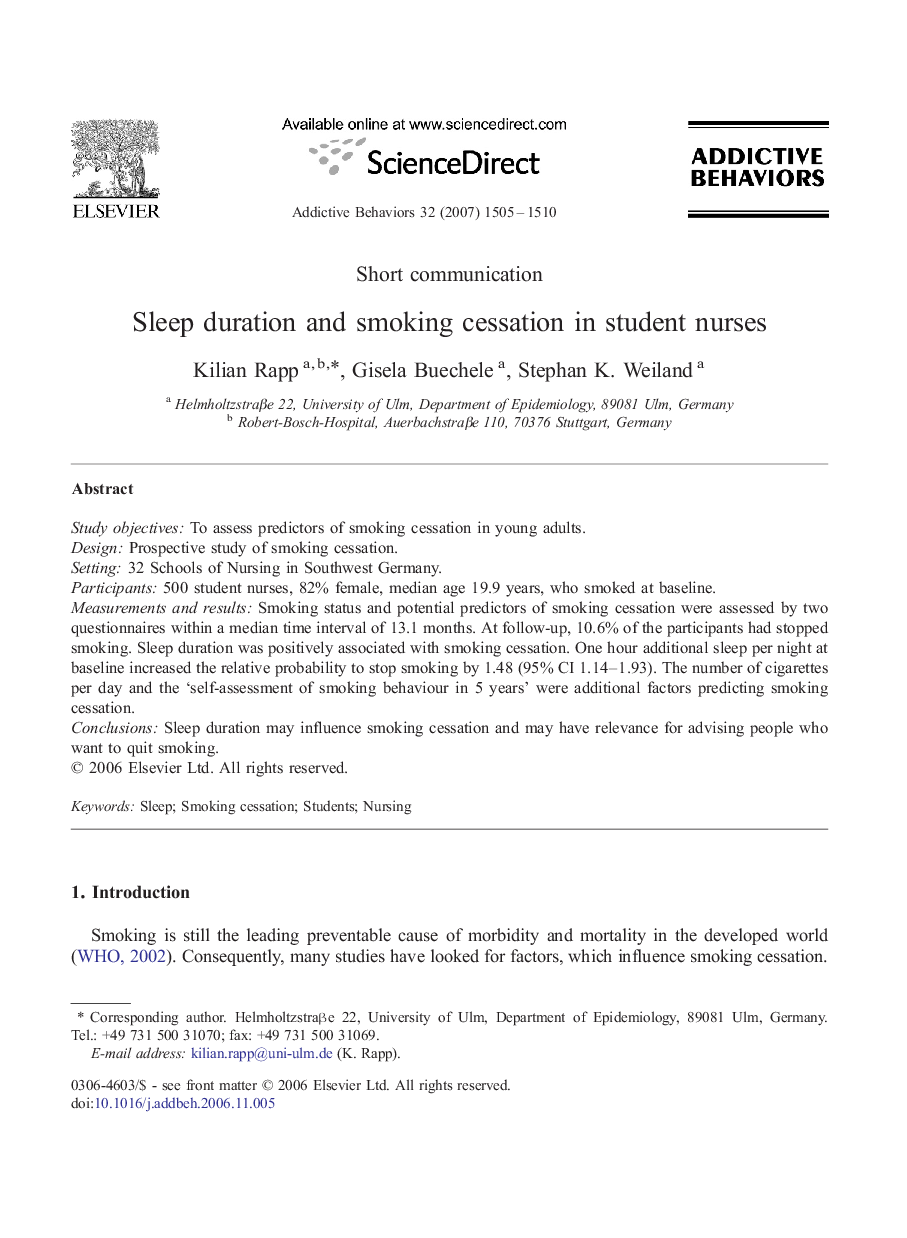| Article ID | Journal | Published Year | Pages | File Type |
|---|---|---|---|---|
| 899890 | Addictive Behaviors | 2007 | 6 Pages |
Study objectivesTo assess predictors of smoking cessation in young adults.DesignProspective study of smoking cessation.Setting32 Schools of Nursing in Southwest Germany.Participants500 student nurses, 82% female, median age 19.9 years, who smoked at baseline.Measurements and resultsSmoking status and potential predictors of smoking cessation were assessed by two questionnaires within a median time interval of 13.1 months. At follow-up, 10.6% of the participants had stopped smoking. Sleep duration was positively associated with smoking cessation. One hour additional sleep per night at baseline increased the relative probability to stop smoking by 1.48 (95% CI 1.14–1.93). The number of cigarettes per day and the ‘self-assessment of smoking behaviour in 5 years’ were additional factors predicting smoking cessation.ConclusionsSleep duration may influence smoking cessation and may have relevance for advising people who want to quit smoking.
